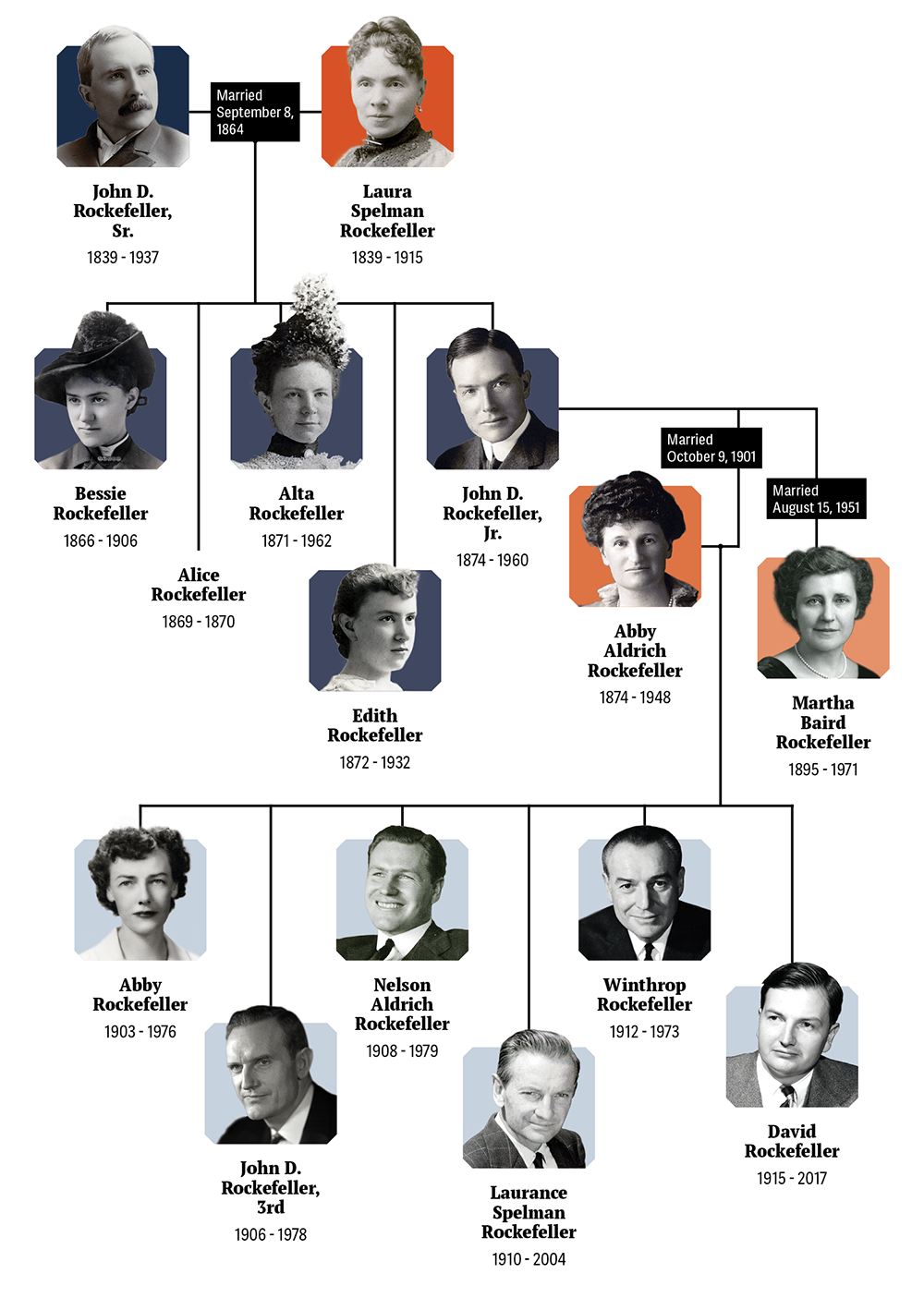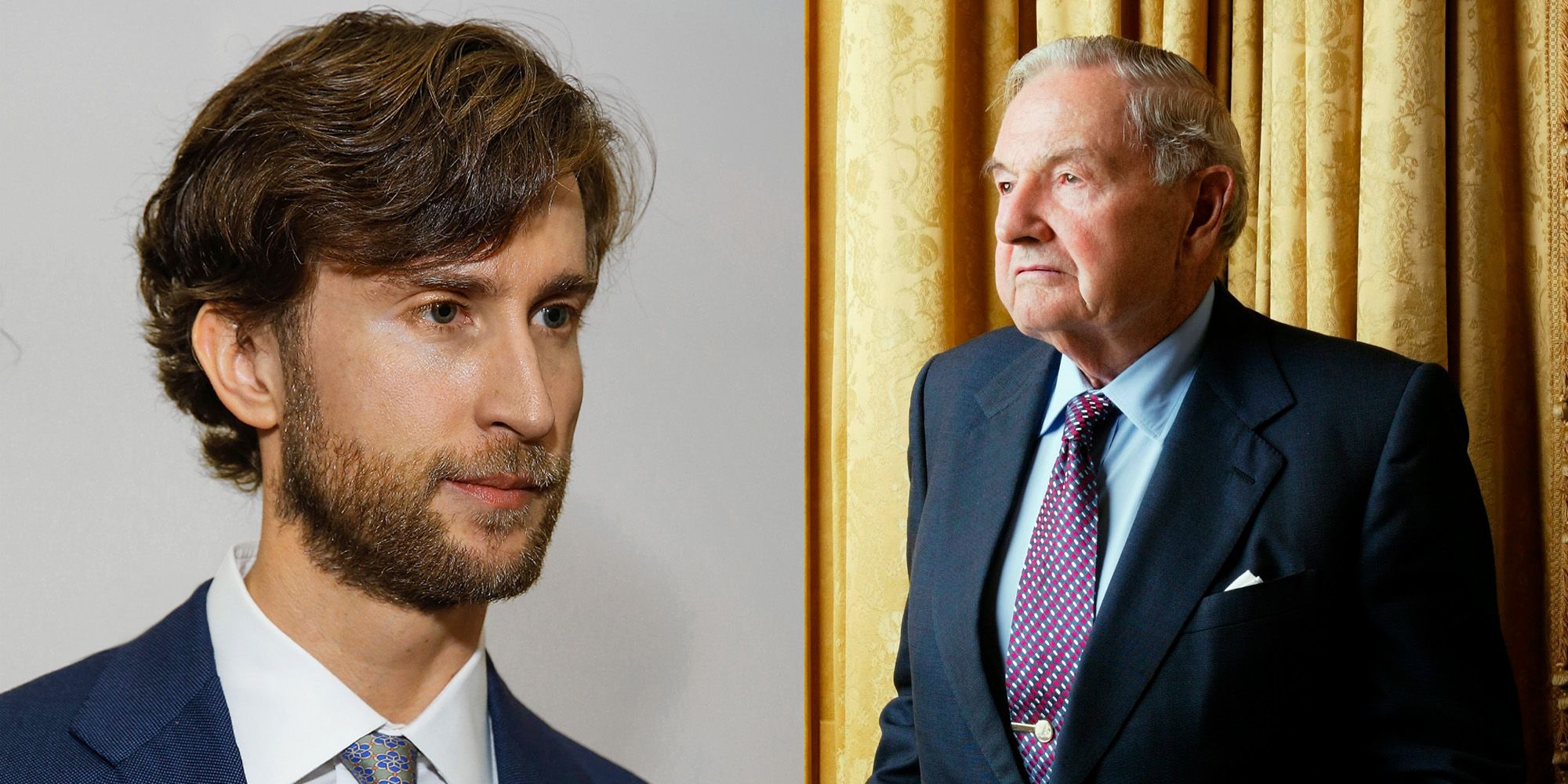Discovering The Rockefeller Family Today: News & Updates
Is the legacy of the Rockefeller family today merely a whisper of a bygone era, or does it continue to resonate with the same power and influence that once shaped global landscapes? Their enduring presence, though less ostentatious, still touches economies, philanthropy, and political currents in ways few families can claim.
The Rockefeller name, synonymous with colossal wealth and transformative philanthropy, conjures images of oil tycoons, groundbreaking medical research, and sprawling estates. However, understanding the Rockefeller family today requires looking beyond the gilded age and examining their contemporary impact. The family's story is not a static one; it is a dynamic narrative of adaptation, evolution, and a continuing commitment to shaping the world, even if the methods and areas of focus have shifted considerably. The passage of time has witnessed several generations of Rockefellers, each leaving their mark on society. Today, their influence is multifaceted, ranging from significant contributions to the arts and sciences to investments in sustainable development and social justice. The key to appreciating their modern-day relevance lies in understanding the nuances of their evolving priorities and the mechanisms through which they continue to wield influence.
To better understand the individuals who embody the Rockefeller family today, it's helpful to examine some key figures and their contributions. This table provides a glimpse into their backgrounds, careers, and areas of focus. Please note that this table represents a selection of prominent individuals and is not exhaustive. The Rockefeller family has been and continues to be a vast network of individuals with varied interests and involvements. Further research is encouraged.
| Name | Born | Notable Career/Affiliations | Key Areas of Focus | Current Activities | Reference Link |
|---|---|---|---|---|---|
| David Rockefeller Jr. | July 24, 1941 | Chairman Emeritus, Rockefeller & Co.; Former Chairman, Rockefeller Foundation | Philanthropy, Environment, Arts | Continuing involvement in Rockefeller philanthropic endeavors; focused on sustainable development and climate change initiatives. | Rockefeller Foundation |
| Steven C. Rockefeller | July 23, 1936 March 9, 2024 | Professor of Religion, Middlebury College; Senior Advisor for the Rockefeller Brothers Fund | Environmental Ethics, Religious Studies, Philanthropy | Legacy of promoting environmental sustainability and social justice through education and philanthropic work. | Rockefeller Brothers Fund |
| Valerie Rockefeller | 1960 | Director, Rockefeller Brothers Fund; Director, The Good Housekeeping Institute | Philanthropy, Sustainable Development, Education | Active in the Rockefeller Brothers Fund, focusing on climate change, social justice, and sustainable development. | Rockefeller Brothers Fund - Staff |
| Richard Rockefeller (Deceased) | 1949 - 2014 | Physician; Philanthropist; Chairman of the Board of Trustees, Rockefeller University | Public Health, Philanthropy, Medical Research | Actively involved in various philanthropic initiatives, particularly in the areas of public health and education. | Rockefeller University |
| Peter M. O'Neill | 1953 | Chairman, Rockefeller Financial Services | Finance, Investments | Overseeing Rockefeller Financial Services, providing financial services and wealth management for individuals and institutions. | Rockefeller Financial Services |
The Rockefeller Foundation, perhaps the most visible manifestation of the family's philanthropic endeavors, continues to play a crucial role. Established in 1913 by John D. Rockefeller, Sr., and his son, John D. Rockefeller Jr., the foundation has undergone significant evolution. It began with a focus on public health, supporting efforts to combat yellow fever and hookworm, and later expanded to include the advancement of science, education, and the arts. Today, The Rockefeller Foundation is deeply engaged in addressing some of the world's most pressing challenges. The Foundation has a strong presence in a number of vital sectors, from Climate Change and Food Security, to work in Health and Innovation. Moreover, the foundation is also active in several developing countries through initiatives.
Climate change is a major area of focus for the Rockefeller Foundation. They actively support initiatives aimed at reducing greenhouse gas emissions, promoting renewable energy, and building resilience to the impacts of climate change. This work underscores a commitment to environmental sustainability that is a hallmark of the family's modern-day priorities. Through grants, investments, and advocacy, the foundation seeks to catalyze solutions that can have a global impact. They provide funding for research, policy development, and implementation of climate solutions, working with governments, NGOs, and the private sector to foster a more sustainable future.
Beyond climate change, The Rockefeller Foundation is deeply involved in promoting food security, both in developed and developing countries. Recognizing the interconnectedness of global challenges, the foundation supports innovative approaches to agriculture, addressing issues such as food production, distribution, and access. The Foundation works to improve agricultural productivity, enhance nutritional outcomes, and build resilient food systems that can withstand shocks like climate change and economic instability. This focus on food security reflects a broader commitment to improving the well-being of people around the world. They work with farmers, researchers, and policymakers to foster sustainable practices that protect both people and the planet.
The Rockefeller Brothers Fund, another prominent philanthropic organization with strong ties to the family, has a different but equally significant focus. Established in 1940, the Fund seeks to advance social change that contributes to a more just, sustainable, and peaceful world. The Fund addresses a wide range of critical global issues, including democratic practice, human rights, and sustainable development. Its grant-making supports a variety of organizations and initiatives that promote these values. The Fund's approach is often characterized by its long-term perspective and its willingness to take risks. The Rockefeller Brothers Fund often partners with organizations that work at the grassroots level, supporting community-based efforts that address local challenges. They also provide funding for advocacy and policy work, aiming to influence broader systemic change.
The family's commitment to education remains, albeit in modified forms. The legacy of supporting universities and research institutions endures. Rockefeller University, established by John D. Rockefeller, continues to be a world-renowned center for scientific research. The family's contributions to education extend beyond direct support to include a dedication to fostering intellectual discourse and promoting access to knowledge. Many family members have actively participated in educational initiatives, serving on boards of trustees, supporting scholarships, and advocating for improved educational opportunities.
The Rockefeller family's influence on the arts is also noteworthy. They have a long history of supporting cultural institutions, museums, and the performing arts. This commitment to the arts reflects a belief in the importance of culture for individual and societal enrichment. Throughout the 20th century, the family contributed significantly to the development of museums and cultural centers, and they continue to support a wide range of artistic endeavors today. Their patronage of the arts is not merely a matter of financial support; it is also a reflection of their interest in fostering creativity and preserving cultural heritage.
The impact of the Rockefeller family today extends beyond direct philanthropic giving. Their investments and business ventures also play a role in shaping the world. Rockefeller Financial Services, a prominent financial institution with family connections, manages substantial assets and provides financial services to individuals and institutions. These investments have the potential to influence various sectors of the economy, including energy, real estate, and technology. While the family's investments have evolved over time, they continue to seek opportunities that align with their values and goals, including promoting sustainable development and responsible business practices.
The question of whether the Rockefeller family today wields the same level of influence as in the past often arises. While their visibility may be less prominent, their impact remains significant. The concentration of wealth and the strategic deployment of philanthropic resources provide them with considerable leverage. Their influence is felt in boardrooms, research labs, policy discussions, and in the lives of individuals around the world. They have evolved with the times, adapting their strategies and priorities to address the challenges of the 21st century. The changes they are bringing about also show a remarkable ability to recognize and respond to new demands.
The Rockefeller family's modern relevance is also reflected in their engagement with social justice issues. They recognize the importance of addressing inequalities and promoting human rights. The Rockefeller Brothers Fund, for example, actively supports organizations working on issues of racial justice, economic inequality, and social inclusion. This commitment to social justice reflects a broader awareness of the challenges facing society and a desire to contribute to a more equitable world. Their involvement in these issues is a clear indication that their legacy extends beyond mere financial success.
Moreover, the Rockefeller family has shown an understanding of the importance of collaboration and partnership. They are not working in isolation, but rather are increasingly joining forces with other philanthropists, governments, and non-governmental organizations. This collaborative approach allows them to leverage resources, share knowledge, and achieve greater impact. Through these partnerships, they can address complex global challenges with greater effectiveness. This approach allows them to tap into a wider range of expertise and perspectives, leading to more innovative and effective solutions.
The evolution of the Rockefeller family's focus also highlights their adaptability. They have transitioned from a primarily industrial empire to a diversified portfolio of philanthropic and investment activities. This evolution demonstrates an ability to recognize changing circumstances and adjust their strategies accordingly. They have embraced new technologies, shifted their philanthropic priorities, and adjusted their investment strategies. The family is adapting to the digital age by supporting initiatives that leverage technology to address social and environmental problems. This constant evolution has allowed them to maintain their influence over time.
In conclusion, the Rockefeller family today is not a relic of the past, but a dynamic force in the present. Their influence is multifaceted, encompassing philanthropy, environmental sustainability, social justice, and business. The Rockefeller family's story is one of continuing evolution. The changes observed in their family, from their financial holdings to the work of the Rockefeller Foundation, demonstrate their willingness to engage in the major issues the world is facing today. Their impact on society remains considerable, and their commitment to shaping a better world continues. The key to understanding the Rockefeller family today lies not just in their history, but in recognizing their ongoing efforts to address pressing global challenges and their ability to adapt to a rapidly changing world. Their commitment to innovation, collaboration, and social responsibility indicates that the Rockefeller legacy will continue to evolve and shape the future for generations to come.



